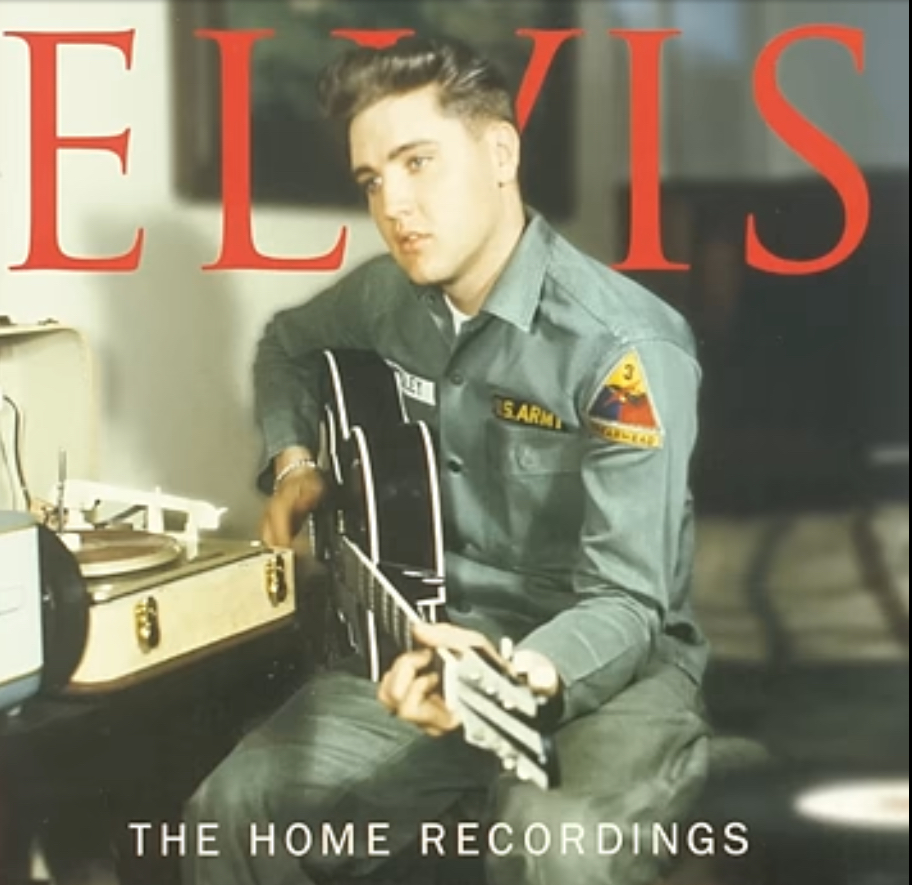
The allure of unreleased recordings lies in their raw, unpolished nature—capturing a moment in time that was never meant for public consumption. Such is the case with Elvis Presley’s home recording of “If I Loved You,” a song that never saw an official studio release but exists as a rare glimpse into the private world of one of the most iconic musicians in history. Known for his commanding voice and revolutionary influence on rock ‘n’ roll, Elvis’s off-the-cuff renditions reveal an intimate side of the King of Rock that the world rarely got to see.
This home recording, buried in a treasure trove of demo tapes and personal archives, has fascinated historians, fans, and musicologists alike. It offers an opportunity to deconstruct the subtleties of his vocal delivery, understand his musical instincts, and delve into the nuances of a man who was constantly evolving as an artist. In this in-depth analysis, we’ll explore the significance of this recording, its context within Elvis’s career, and the unique qualities that make it a vital piece of his legacy.
A Snapshot of Elvis’s Personal and Artistic Life
To fully appreciate “If I Loved You,” it’s essential to understand the context in which the recording was made. Elvis’s career, marked by meteoric rises and equally dramatic declines, was in a state of flux when he began recording informally at home. It was a period defined by personal introspection and experimentation, where Presley would explore genres and songs outside the constraints of his studio obligations. These home sessions provided a creative outlet, free from the influence of record executives or commercial pressures.
Most notably, this recording emerged during the early 1960s, a transitional period for Elvis. The King had just returned from his stint in the U.S. Army in 1960, an experience that profoundly affected his outlook on life and his career. His return to the public eye saw him grappling with a changing music landscape, one that was beginning to embrace the early roots of the British Invasion with bands like The Beatles taking the spotlight. Meanwhile, Presley’s movie career was in full swing, though the quality of films and accompanying soundtracks was met with mixed reviews. The film commitments often detracted from his ability to focus on his music, leaving him feeling creatively stifled.
Against this backdrop, Elvis turned to home recording as a way to reconnect with the music that truly moved him. The home recordings from this period are incredibly diverse, showcasing his eclectic musical tastes—from gospel to blues to Broadway standards like “If I Loved You.” This particular song, originally from the Rodgers and Hammerstein musical “Carousel”, is a tender ballad about love, yearning, and unspoken emotions. It’s a piece that may have resonated with Elvis during this time of artistic searching and emotional vulnerability.
A Vocal Masterclass: Analyzing Elvis’s Delivery
In the home recording of “If I Loved You,” Elvis demonstrates his ability to convey complex emotions with remarkable nuance and restraint. This is a far cry from the more bombastic performances he became known for in the 1950s and early 1970s. Here, his voice is soft, almost whisper-like, as though he’s singing solely for himself or for a select few in his inner circle. The intimacy of his delivery invites the listener to lean in closer, to feel the weight of every syllable and the breath behind each word.
Elvis’s interpretation of the song retains a certain reverence for the original composition, yet he imbues it with a bluesy sensibility that is unmistakably his own. He plays with the melody, lingering on certain notes and altering phrasing to suit his mood in the moment. This flexibility and willingness to experiment are hallmarks of his artistic genius. His voice, a rich baritone capable of both tenderness and power, lends itself beautifully to the song’s theme of unrequited love.
It’s worth noting that Elvis had a penchant for Broadway tunes and standards, a preference that often surprised those who only knew him for his rock ‘n’ roll hits. He appreciated the technical challenge and lyrical depth these songs offered. With “If I Loved You,” he takes a song written for a theatrical setting and adapts it to his personal style, stripping it down to its emotional core.
The recording itself is filled with subtle imperfections—slightly missed notes, uneven volume, and occasional hesitations. But it’s precisely these imperfections that make it so compelling. Unlike his polished studio recordings, this home session captures a raw, unfiltered side of Presley that feels vulnerable and deeply authentic. It’s a reminder that even the greatest performers have moments of uncertainty, and it’s in these moments that their humanity shines through.
The Emotional Resonance of “If I Loved You”
The lyrical content of “If I Loved You” centers around a hypothetical love, one that’s wistfully pondered but never fully realized. The song speaks of regret and the inability to express one’s feelings—emotions that seem to mirror Presley’s own struggles with fame, relationships, and self-expression during this period. The line “If I loved you, time and again, I would try to say / All I’d want you to know” could easily be interpreted as an introspective look at his own life, filled with unspoken desires and unmet potential.
Elvis’s choice to record this song privately suggests a personal connection to its themes. Perhaps he related to the protagonist’s reluctance to open up, or perhaps he saw a parallel between the song’s narrative and his own complicated love life. By the early 1960s, Elvis’s romantic relationships were the subject of intense media scrutiny, and his attempts to navigate personal intimacy while maintaining his public persona were fraught with difficulty.
His rendition of “If I Loved You” exudes a sense of melancholy that makes the listener believe that, for those few minutes, Elvis was channeling his own experiences into the song. The result is a poignant performance that resonates long after the final note fades away. It’s a stark contrast to the confident, swaggering image of Presley that dominated his public persona, offering a rare glimpse into his inner world.
The Recording’s Place in Elvis’s Musical Evolution
Elvis’s decision to record “If I Loved You” at home, away from the professional studio environment, illustrates his willingness to explore and experiment outside the constraints of genre or public expectation. It’s an indication of his versatility as a performer and his ability to transcend the boundaries of rock ‘n’ roll. While he is most famous for pioneering rock music, Elvis’s home recordings reveal an artist who was equally comfortable tackling blues, gospel, country, and even classical compositions.
This versatility is crucial to understanding his enduring legacy. Though many view Elvis through the lens of his chart-topping hits, these informal sessions show that he was more than just a rock icon—he was a consummate musician with a deep appreciation for diverse musical traditions. The fact that he chose to engage with a song like “If I Loved You,” which is far removed from his typical repertoire, speaks to his open-minded approach and his desire to grow as an artist.
Unreleased home recordings like “If I Loved You” play a unique role in shaping our understanding of Elvis’s artistry. These recordings serve as historical documents that capture the creative process and mindset of an artist in his most unguarded moments. They offer an alternative perspective to the carefully curated image of Elvis that was presented to the public—a glimpse of a man grappling with his own artistic identity and aspirations.
For collectors and fans, these recordings are invaluable. They provide a deeper appreciation of Elvis’s work and reveal new dimensions to his talent. They also challenge conventional narratives about his career, suggesting that there was much more to Elvis than what was seen on stage or heard on the radio.
Elvis Presley’s home recording of “If I Loved You” is a hidden gem that showcases the King of Rock in a way that few other recordings do. It’s a testament to his versatility, his emotional depth, and his unwavering commitment to his craft. Though it may lack the polish of his studio recordings, it more than makes up for it with its authenticity and emotional power.
No comments yet.








